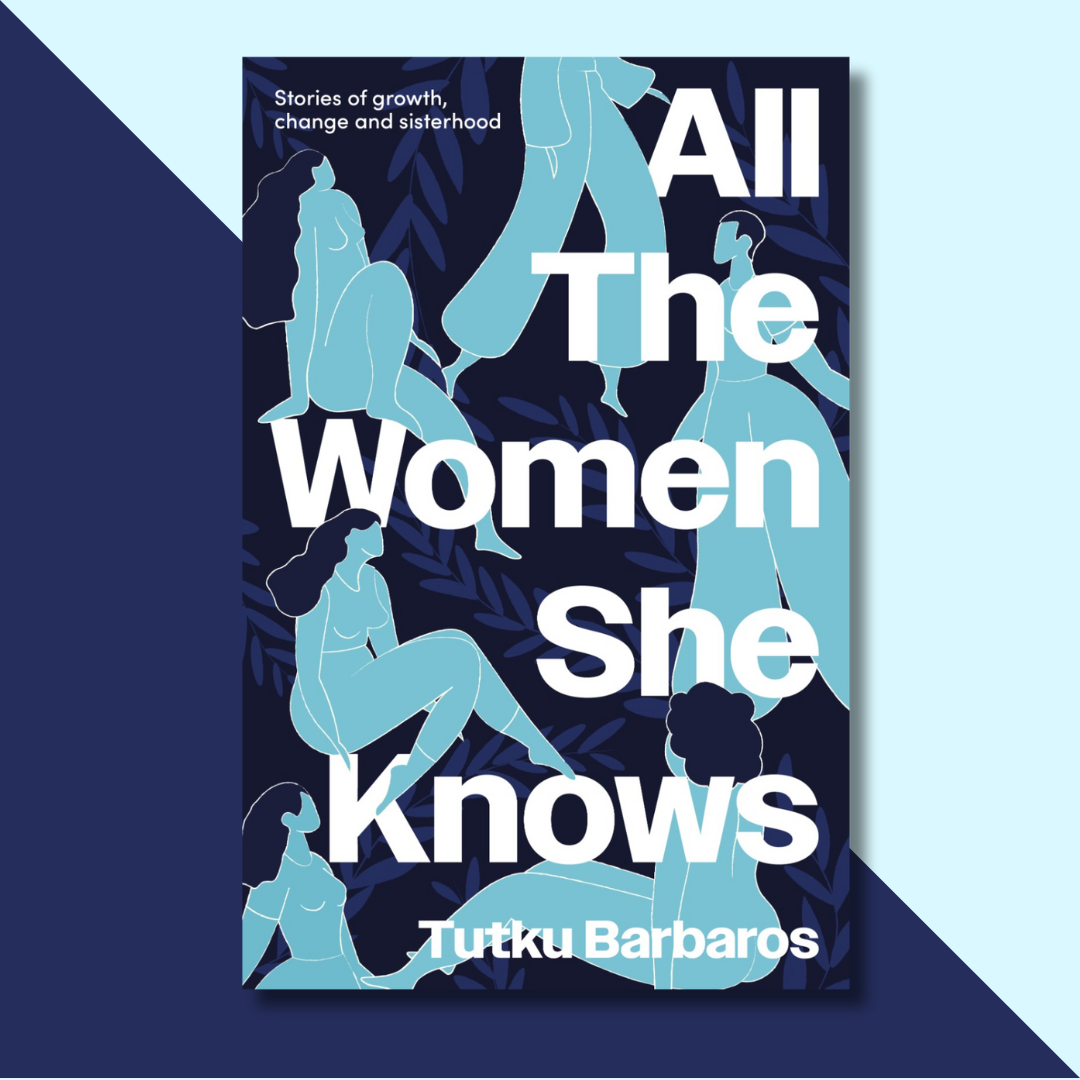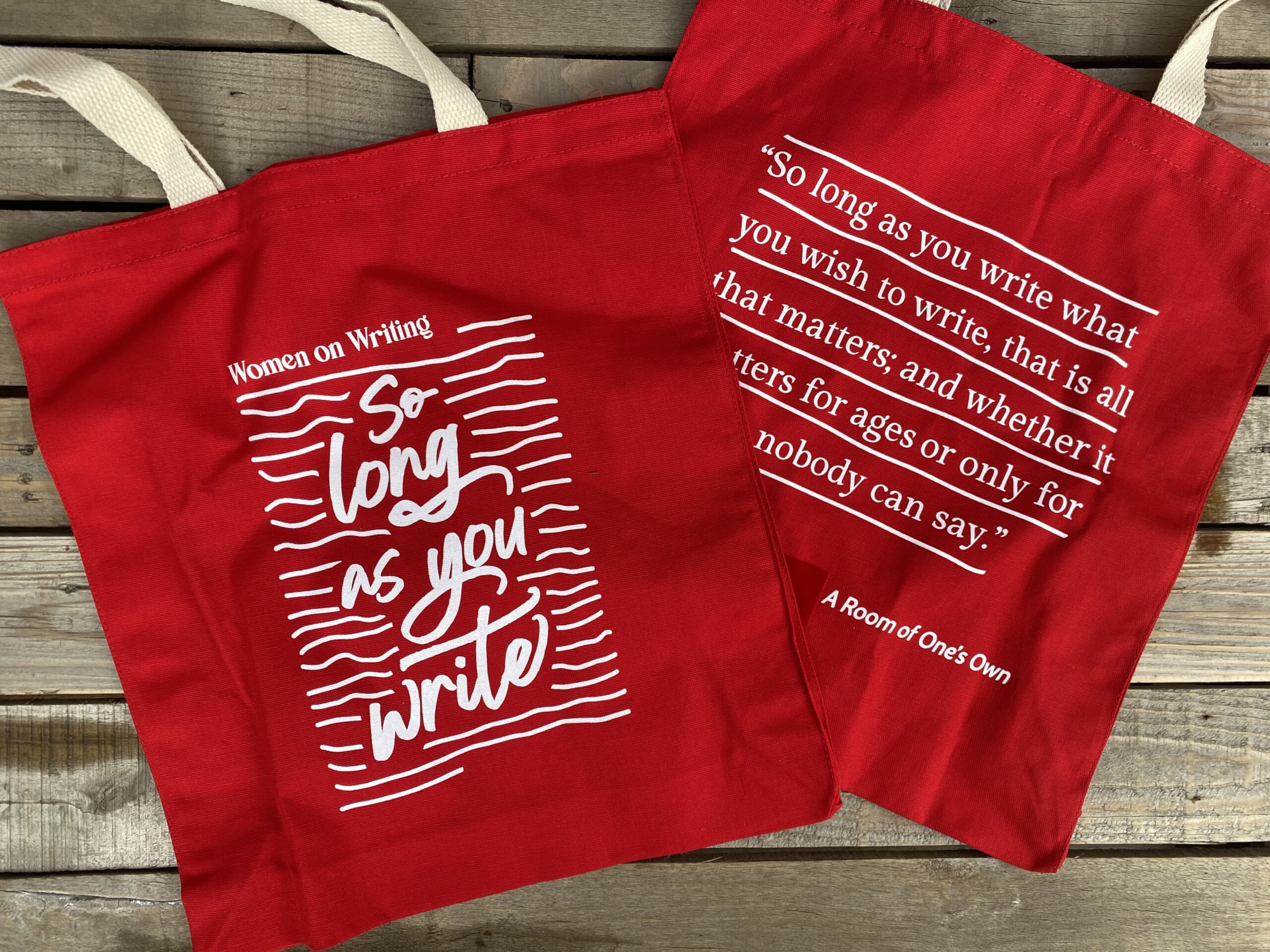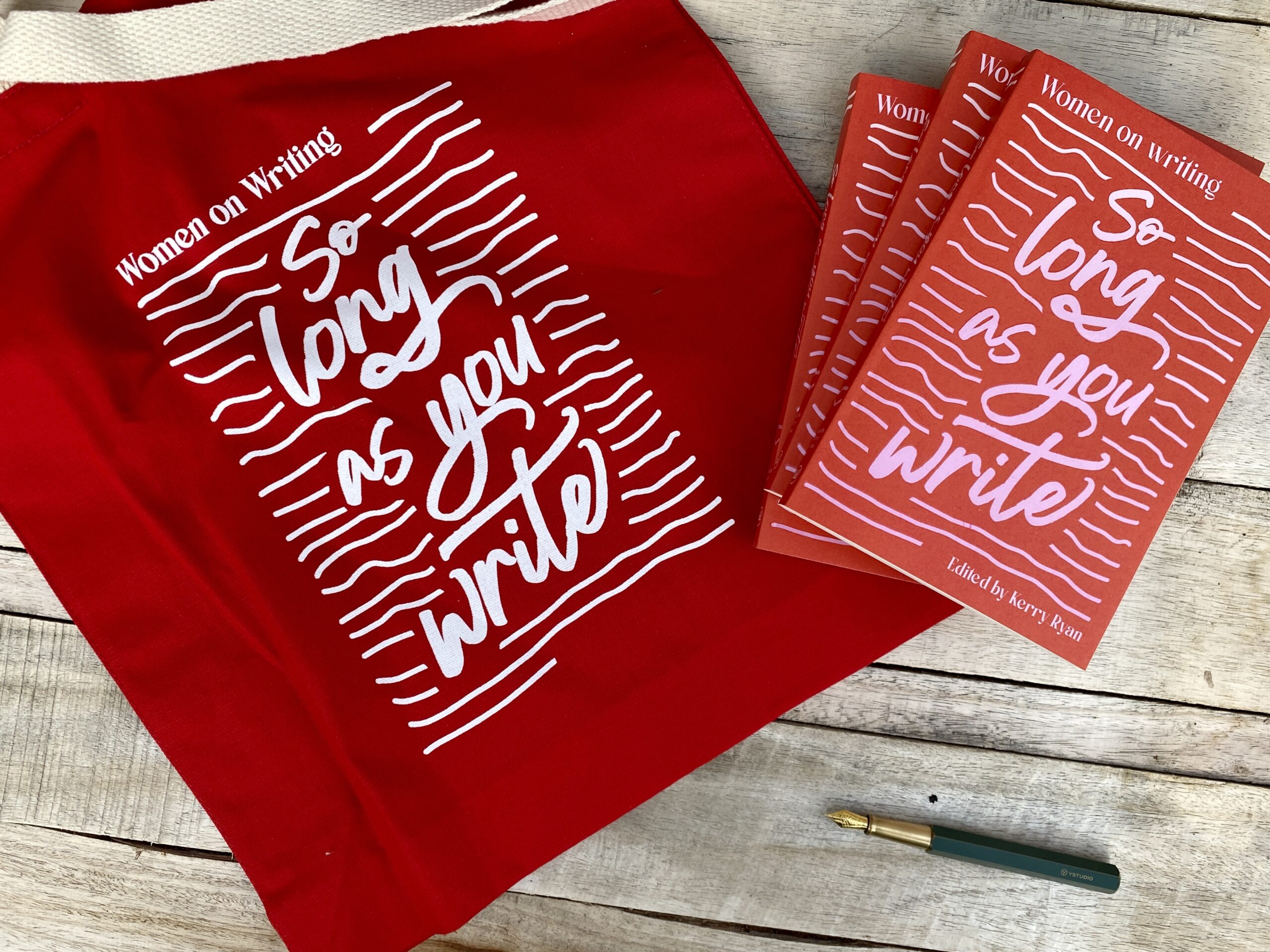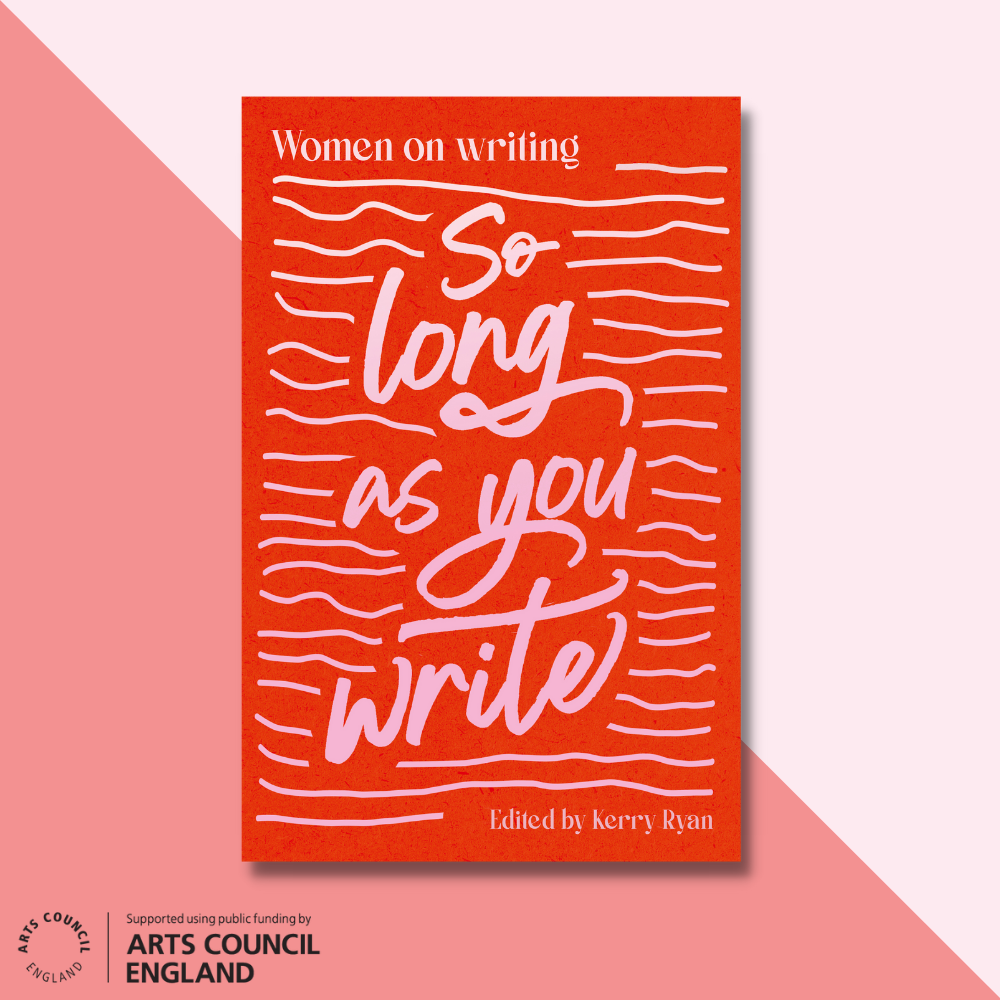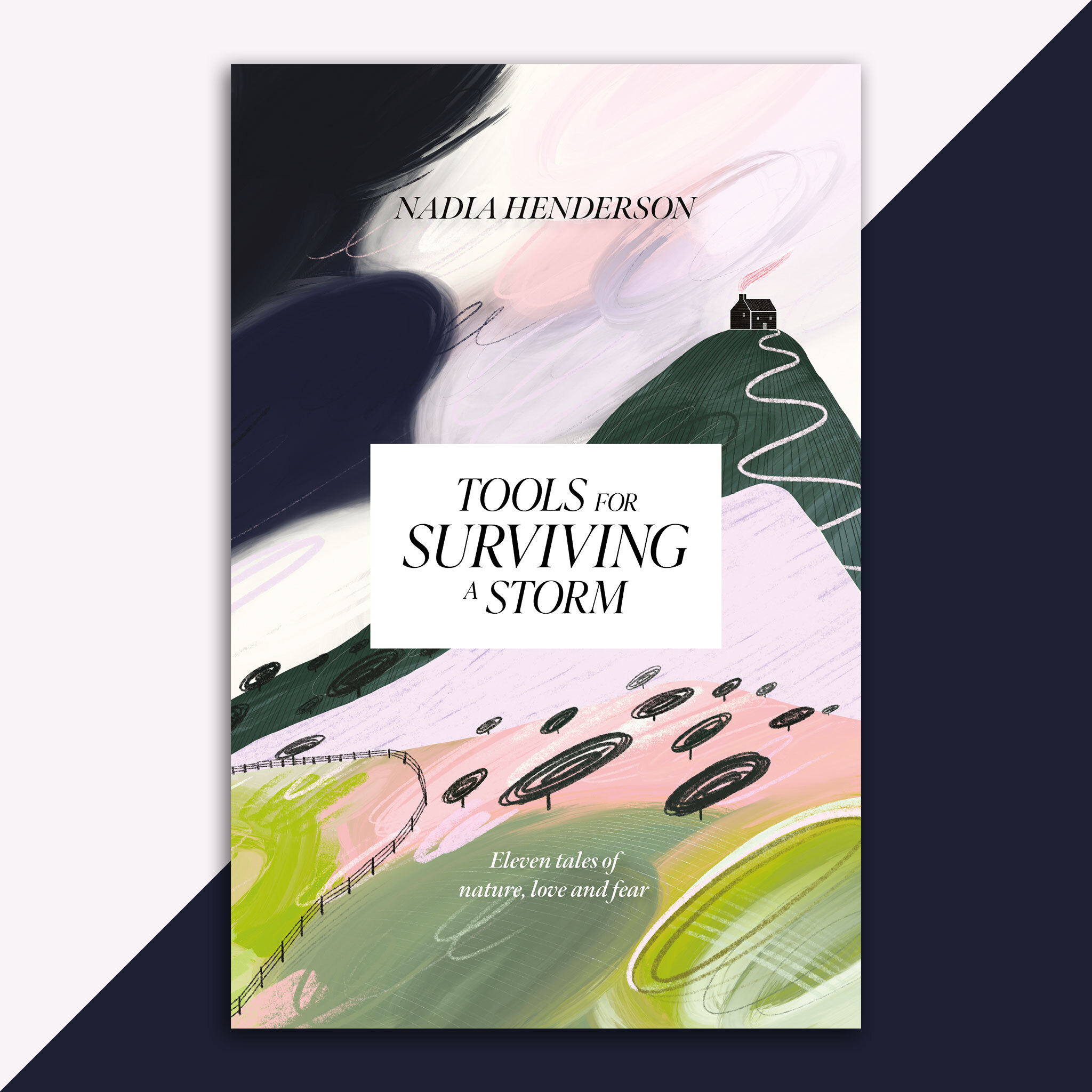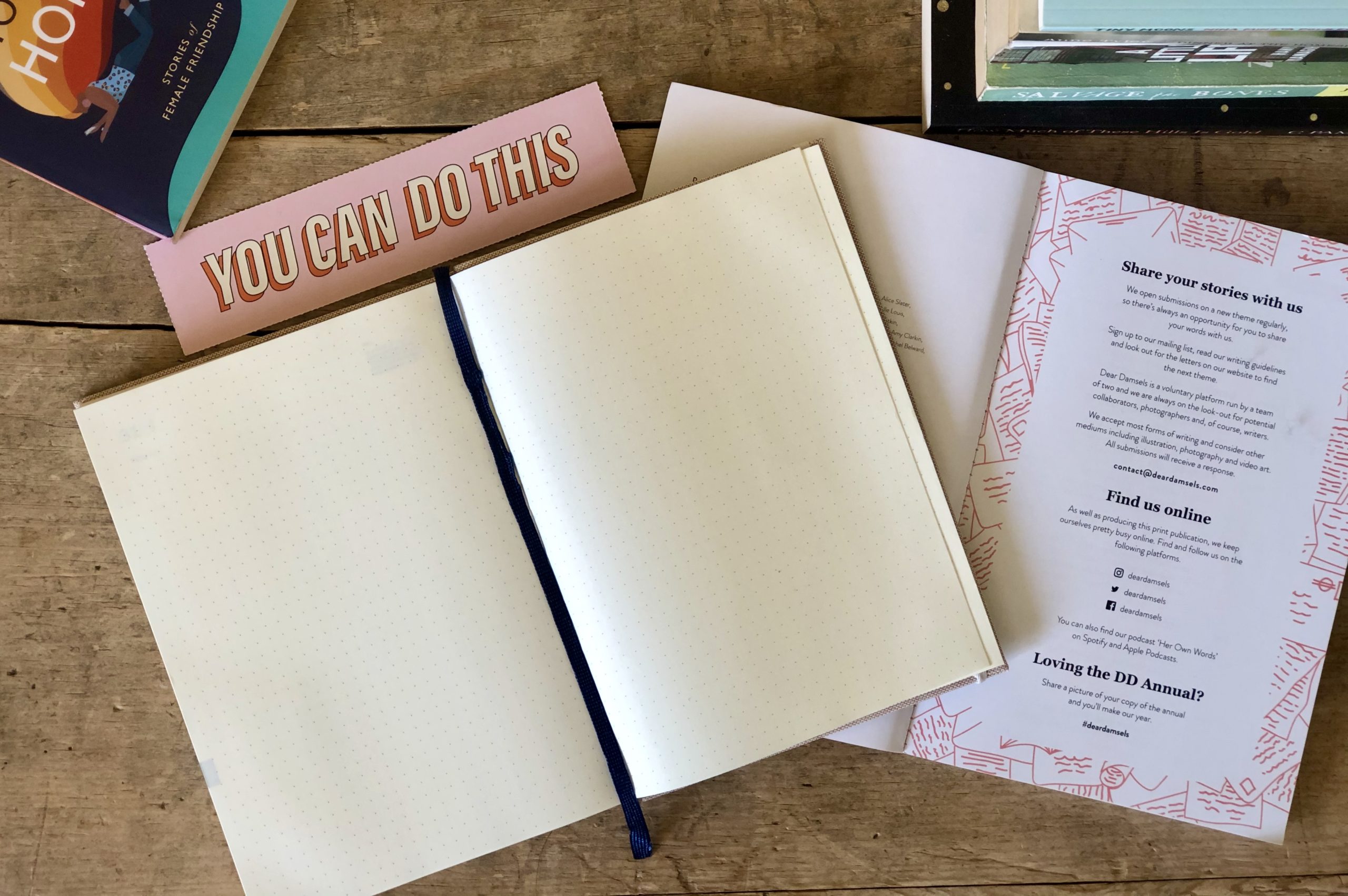Damsel in Distress: I think my story is finished. What now?
Our creative writing agony aunt and Write Like a Grrrl founder Kerry Ryan shares wisdom on trusting yourself when a writing project is finished and having the motivation to edit.
Dear Kerry,
I’ve written a short story but what do I do now?! It feels like a complete story. I’ve gone back through it and edited it five or so times now, taking on board advice from a close circle of trusted writer friends, using their feedback to adjust it and improve it.
I’ve also tried putting it away for a couple of weeks before looking at it again with fresh eyes. I think I’m mostly done with it now, but how do I know when I reach that stage? I keep worrying that either I’m now sabotaging it by continuing to edit it, or that I am a fool who has totally underestimated how much editing it still really needs!
And if I can ask a second question: how do you keep up motivation to do editing once you’ve finished writing? It feels like a long old slog… and I am itching to be done with it and just start writing again.
Thank you,
Dithering
Dear Dithering,
Congratulations! You’ve done everything you should. You’ve edited, received feedback from trusted friends, given it some space then edited again. Well done! Yet you’re hesitant. How do you really know when it’s completely finished? Well, the answer is it’s never completely finished. Close to done is as good as it gets.
Zadie Smith talks of being in the wings before going on stage to give a reading and finding herself editing her published novel with a biro—a novel published to great acclaim and a bounty of prizes and readers. When Tolstoy was an old man, he was the honoured guest at a country house for the weekend. The enthusiastic host had fanned out the Master’s books on a table in the hall. Tolstoy picked up War and Peace and flicked through the pages. ‘Ah,’ he said. ‘Now I see how I might have written it.’
There’s always something we could change. As you recognise, you can sabotage by editing endlessly but also by submitting your writing too soon. So how do you know when to edit and when to let go? Ask yourself: have I worked as hard as I possibly can, using all the skills I have at this time? It certainly seems so but what gives me pause is your second question. Editing is a long old slog, you write. How do you keep up motivation? I wonder if perhaps this is a clue. Have you been too impatient? Too quick to move on? Only you know for sure. Take a quiet moment to ask yourself, trust the answer, and then proceed accordingly.
Investigating how committed you’ve been to the editing process is essential but the litmus test should be: does this story connect? This is what you should ask your beta-readers first and foremost. How does the story make them feel? Are they moved to sadness/happiness/red rage? Our ego wants us to write for tweets and prizes and to plant a flag on the burning corpses of everyone who ever doubted us. Our ego wants folk to faint at our brilliance, to be wowed by our metaphors and our sentence construction, but if our story doesn’t connect then it’s just an empty exercise in aesthetics.
Yet readers are fickle creatures. Some will connect, some won’t and it’s impossible to predict in what quantities. Anne Enright—always wise—advises us not to waste our time second-guessing whether readers will take to our work en masse:
Apart from anything else, you can be quite wrong. My most successful work was written in despair at how bad it was, how misguided, how doomed to a small print run and the remainder bins.
The thing is, we just don’t know. We can’t tell. That story you thought would have them weeping into their Kleenex, has them shrugging ‘meh’. That story about a turf war between hatmakers in Kentucky turns out not to be what the world needs after all. All we can do is edit with the skills we have, share with our beta-readers and check whether it connects. After that, it’s out of our hands.
And if it doesn’t connect with the wider world? No matter. Try again. Fail again. Fail better. We fail and we survive. This is the medicine we need. Particularly if you’re a perfectionist, as I once was. I think perfectionists are subconsciously drawn to writing in the same way therapists are drawn to practice certain types of therapy— it’s what they need to heal. What we perfectionists need is to fail. And writing offers so many opportunities to fail. God, it does. Again and again we fail. Again and again we survive.
“Be your own ideal reader. What does she want? What will keep her reading? How can you best connect with her? Write for her. Edit for her.”
Besides, we never actually fail. We learn. What doesn’t work teaches us what will work. Every story, every novel is built on what came before. Also, sometimes you just need to revisit a story a year, two years, ten years later and then you understand how to make it impact. No word, no sentence, no story is ever a waste or a failure. And it turns out that when things don’t quite go to plan, those who love us still love us. Day turns to night. Life beats on. And so do we, developing our craft, nurturing ourselves, understanding—finally!—that our worth is not defined by our words. We learn to remain steady in our intentions, steady in our desire to connect, despite the slings and arrows of outrageous publishing and the whims of the reading public.
But who do we write for if we’re not writing for the reading public? You’ve probably come across the concept of the Ideal Reader—a fictional someone that your story or novel would most appeal to. I feel strongly that the Ideal Reader should be you and not in a self-indulgent or egotistical way. Rather, you should write for “the you in the audience” as playwright Tim Fountain describes it. Write for the you wandering the stacks in Waterstones; the you who has had a shit day and feels strange and odd and apart; the you who just wants a bit of escapism in the middle of a pandemic, thank you very much. Be your own ideal reader. What does she want? What will keep her reading? How can you best connect with her? Write for her. Edit for her. She deserves your full commitment and consideration, your total focus and effort.
And just a reminder that writing is editing. Initial inspiration and knocking out a first draft is only a teeny part of the process. But you can mix it up. Edit one story, pause to knock out a draft of another then go back to editing the first. Write poetry. Write plays. Read widely so you’re fired up by good writing and desperate to polish your own. Editing can be hard, yes, but we have to learn to love it. To take pleasure in the sweat of shaping and tightening, in witnessing our sentences, our paragraphs snap into place, and our story begin to sing at last. Or at least, we hope it sings—that’s up to our beta-readers, publishing’s gatekeepers and the reading public.
And if it doesn’t sing? No matter. Try again. Fail again. Fail better.
Sending love and power,
Kerry
Is your new years resolution to write more? Get some advice from Kerry and start your 2021 with a creative boost. Submit your question to us using the contact form below.

Kerry is the founder of Write like a Grrrl, which offers creative writing courses for women & NB in partnership with For Books’ Sake in the UK. Kerry’s Write like a Grrrl courses are now taught all over the world and Kerry has facilitated workshops across the UK, in Ireland and Russia. She has taught mindfulness and self-compassion as well as creative writing to actors, women leaving sex work, domestic abuse survivors and facilitated many LGBTQ+ creative writing courses. Her work has been featured in various publications including Steer, The Manchester Review, the Kenyon Review and Spilling Ink. Her play Trust was recently performed at the Gulbenkian Theatre.
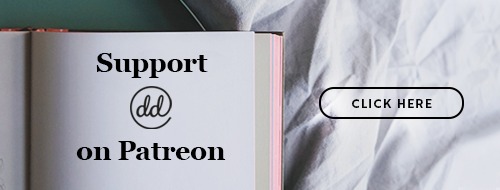
Dear Damsels is your collective.
We wanted to create a space on our website where you can find out what your collective is doing for you. Whether it’s upcoming events, publications, or podcast episodes, this blog is where we communicate directly with you about what is going on in the world of DD.
